The Buffalo shooting brings back a lifelong question: Why do they hate us so much?
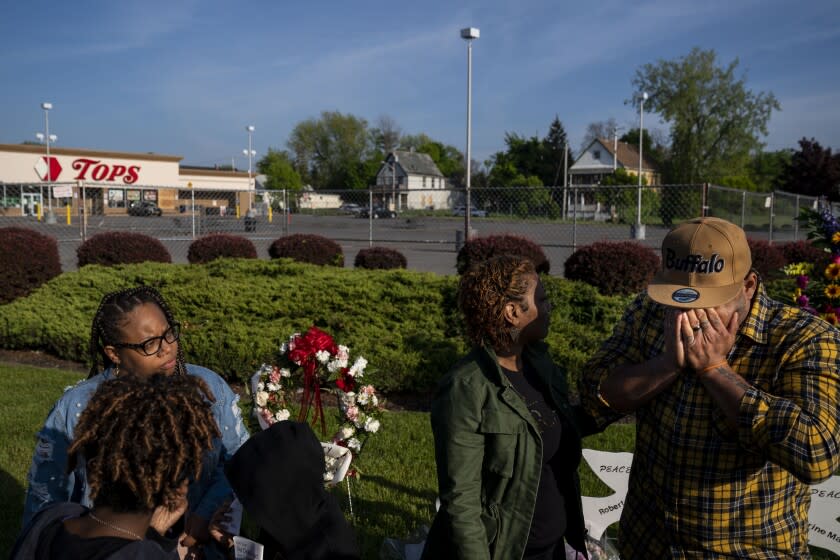
My reaction to news of the mass shooting in Buffalo, N.Y., was more than emotional; my heart raced and my stomach churned. My hands are shaking as I write this nearly a week later.
My first thought, in the moment after I heard about the attack, was the same as it always is after every mass shooting: Dear God, please don’t let the shooter be Black. Because in the eyes of white America — consciously or not — the rest of us would be held to account.
The air cleared as the truth came out — a hate-filled young white supremacist, prosecutors say, had meticulously planned to annihilate as many Black people as he could while they shopped for groceries on a Saturday afternoon. Ten people died — all of them Black — and three were hospitalized.
As irrational as it seems, I felt a brief flash of relief; the shooter allegedly was, once again, a white man beholden to hate and enamored with guns, whose carnage would be his legacy.
But that relief was instantly dispatched by blinding rage, wrenching heartbreak, inchoate fear — and the isolating feeling of being a potential target in a violent and hateful land, carrying a load that few of my colleagues and neighbors can understand.
::
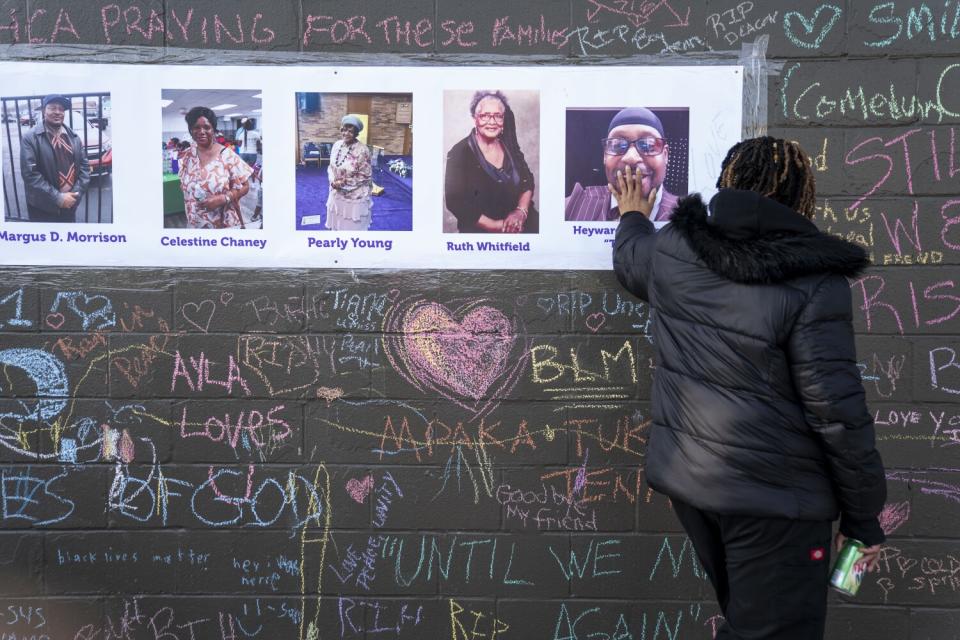
I have lived in that land for more than six decades now. And I can still remember when I first began to feel the weight of that burden, when it dawned on me that my brown skin could make me a pariah.
Except I didn’t know that word back then, at Miles Elementary School in Cleveland, where almost all of the other students were white. I was in fifth grade and we were learning about the history of “our great country,” as my teacher always called it.
I tried to laugh it off when I was mocked by white classmates, who thought images of crowded slave ships and Black men being whipped were cartoonishly funny. I was grateful then that my brown skin hid the red flush of shame. Some of these were people I’d considered friends.
And the torment didn’t stop when the school day ended. At a New Year’s Eve sleepover at the YWCA, which I’d begged for permission to attend, my younger sister and I were terrorized by a cabal of white girls who pelted us with the N-word, then laughed uproariously as others joined in.
We suffered in silence; there were two of us, dozens of them.
When my mother picked us up the next day, we squirmed as we insisted we had fun — then we never spoke of it again. But the shame didn’t fade. And the question that was stuck in my head eventually found its way out:
Mommy, why do they hate us so much?
I wish I could tell you what her answer was. I can only remember pain contorting her face and tears welling up in her eyes. Years later I learned that she’d asked her own mother that same question, when she was a child growing up in Alabama under the yoke of Jim Crow laws.
When my own daughter came to me as a teenager — humiliated by the way everyone stared at her when racist tropes were the subject of their history class — I braced myself for what I knew she would ask; the question generations of progress had not nullified:
Mommy, why do they hate us so much?
And now I’m forced to imagine my granddaughter, with her beloved coterie of brown Barbies and baby dolls, asking that same awful question when she’s old enough to recognize that people like us are not universally loved.
Mommy, why do they hate us so much?
::
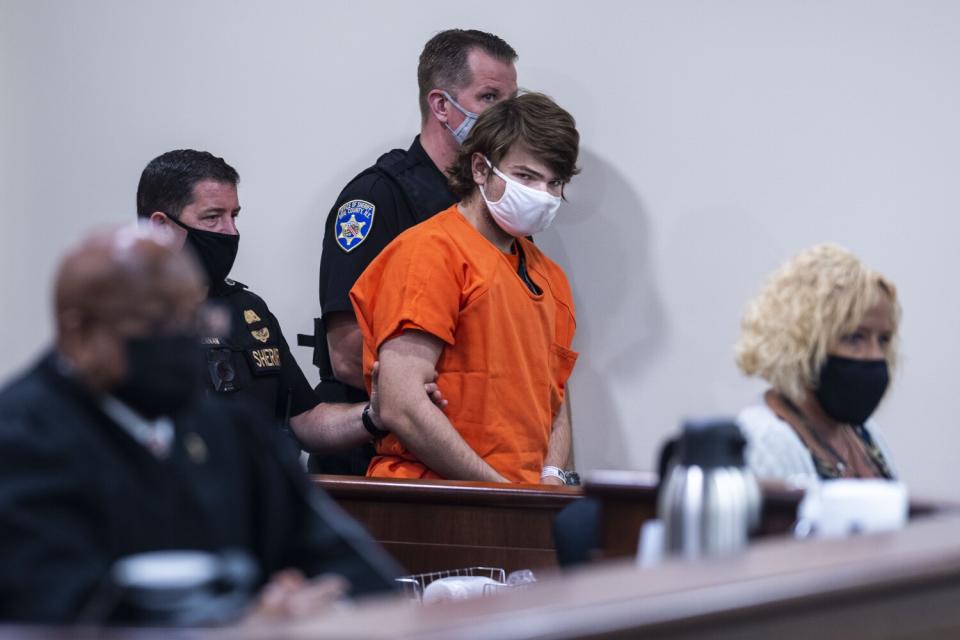
My mother was born more than a century ago, when the Ku Klux Klan ruled rural Alabama, torturing and murdering any Black person who didn’t toe their line. One by one, she and her siblings migrated north to Cleveland in the 1940s and built new lives.
I remember how hopeful she felt when we were growing up, at the apex of the civil rights movement, in a city known then for progression activism. We marched and protested and voted, and we clawed our way into the middle class. The future looked limitless and bountiful for our generation then.
Now I am glad she is not here to see this. Our country is moving back toward its nakedly racist past, fueled by shameless politicians, coarse public dialogue and fictional social media conspiracies.
And the danger now is not only from white-hooded goons, but random misfits and losers; ordinary racists and fascists, with massive arsenals and a growing list of enemies they’ve targeted by race, religion, ethnicity, gender and non-conformist identities.
We’ve spent a lot of time this week trying to parse the clues that might explain the evil that allegedly motivated Payton Gendron — as if the malignancy of the "great replacement theory" had somehow mysteriously infected him.
We need to stop feigning shock and innocence about how and why these massacres keep happening. We have shamefully lax gun laws, centuries-old racist and nativist proclivities, an education system stuck in the 20th century, and a growing unwillingness to care about anyone other than me, me, me.
So while we can keep trying to untangle the alleged motives of Gendron — as we did with Dylann Roof, Adam Lanza, Patrick Crusius, Robert Aaron Long, Robert Bowers and now David Chou — we might also consider what the carnage puts the rest of us through.
There’s a price we all pay in the wake of these unconscionable murders. And the burden falls heaviest on the targeted groups, whose emotional turmoil can last for months, long after other folks have moved on.
The funerals in Buffalo begin on Friday, and dozens of friends and families will begin their journey into new lives, irrevocably altered by loss, sorrow and grief.
But those closest to the victims won't be the only ones suffering.
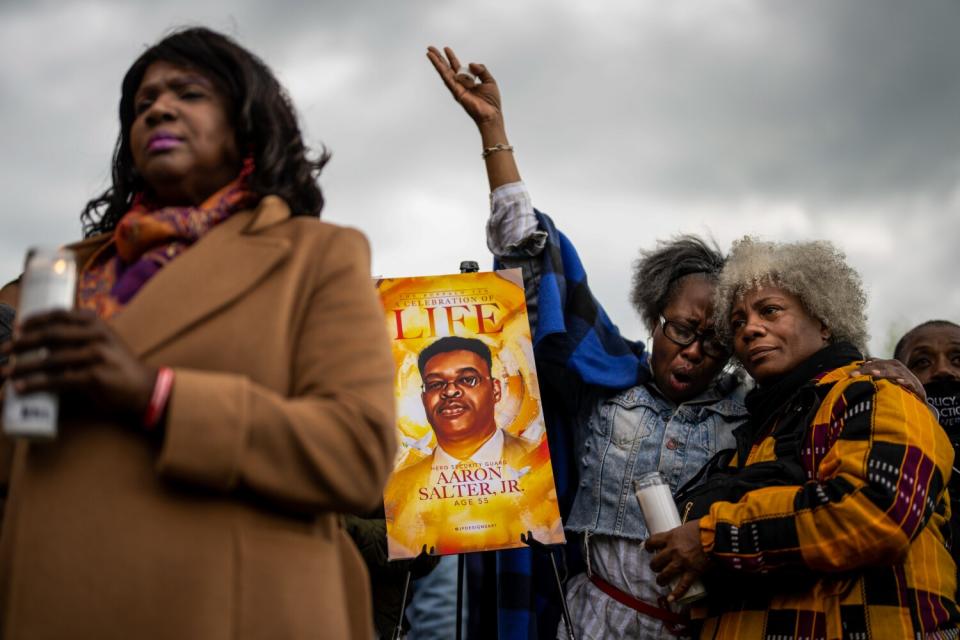
Research has found that mental health can decline significantly, not only among those who witness or lose loved ones in mass shootings, but also among people who share elements of their identity, even if they live nowhere near the event.
Recent studies have focused on highly public anti-Black violence — like the murder of George Floyd, police shootings of unarmed Black men and planned attacks akin to the Buffalo market shooting.
But all racialized public incidents “likely have measurable spillover effects on the mental and physical health of members of the targeted groups," according to social science research edited by Harvard professor David R. Williams.
A study Williams led years ago linked a database of every police shooting over three years to a database tracking the mental health of every population in every state.
“We found that every police shooting of an unarmed Black person led to worse mental health for the next three months, for the Black population in the state [the shooting] occurred,” Williams said.
But just as striking was a separate result: There was no mental health decline when the person shot by police was armed.
That finding opened a window for Williams and his team. The fact that only unarmed victims generated mental health effects reflected the emotions underlying the decline: a sense of unfairness and a heightened awareness of vulnerability.
Both of those can lead to stress and physiological symptoms — like the racing heart and shaky hands I experience every time Buffalo comes to mind.
It makes me feel better somehow to know I am not alone; that my emotions are real and reasonable. I feel wary, unprotected, unsafe, and everything I read or see about the tragedy brings on new waves of grief that unsettle me.
It’s a wound to the psyche, Williams explained.
“It suggests that you can be totally innocent, and still you are potentially vulnerable… Your family members and friends, it could happen to them too. That’s what it feels like to you.”
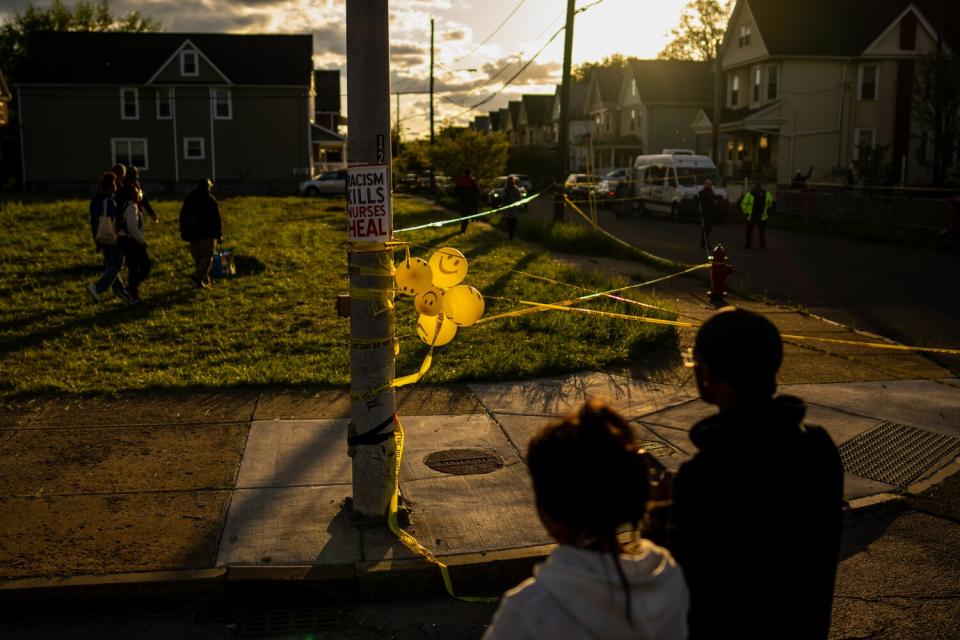
The blow of this particular tragedy may hit Black people harder and hurt longer. But every targeted group is likely to wrestle with the same sense of fear, anger and grief when haters violently intrude on their community.
“It applies to other groups, under the same conditions,” Williams said. “You’re bound to be worried, to feel stress, when something like this happens” in your social network.
When an antisemite, armed with an assault rifle, bursts into a synagogue during Sabbath prayers and shoots 17 people down, how can a Jewish worshiper not be marked by the unholiness of that?
When families strolling through Walmart on a shopping trip are riddled with bullets by a white supremacist targeting Latinos — killing 23 people and wounding dozens more — how does your own Latino family ever feel safe in a crowded store again?
When a close-knit Taiwanese church welcomes a stranger with Christian courtesy, and he padlocks the doors, pulls out a gun, kills one man and wounds five elderly worshipers, how do you not worry that the stranger at your church door might also be up to no good?
And when a neighborhood market turns into a death trap, because a young white man needed someone to blame for his own personal failures, and considered Black people avatars in his virtual game, how do you stifle your own rage over the death of the grandma shopping for dinner and the dad shot down buying his son a birthday cake?
This story originally appeared in Los Angeles Times.

